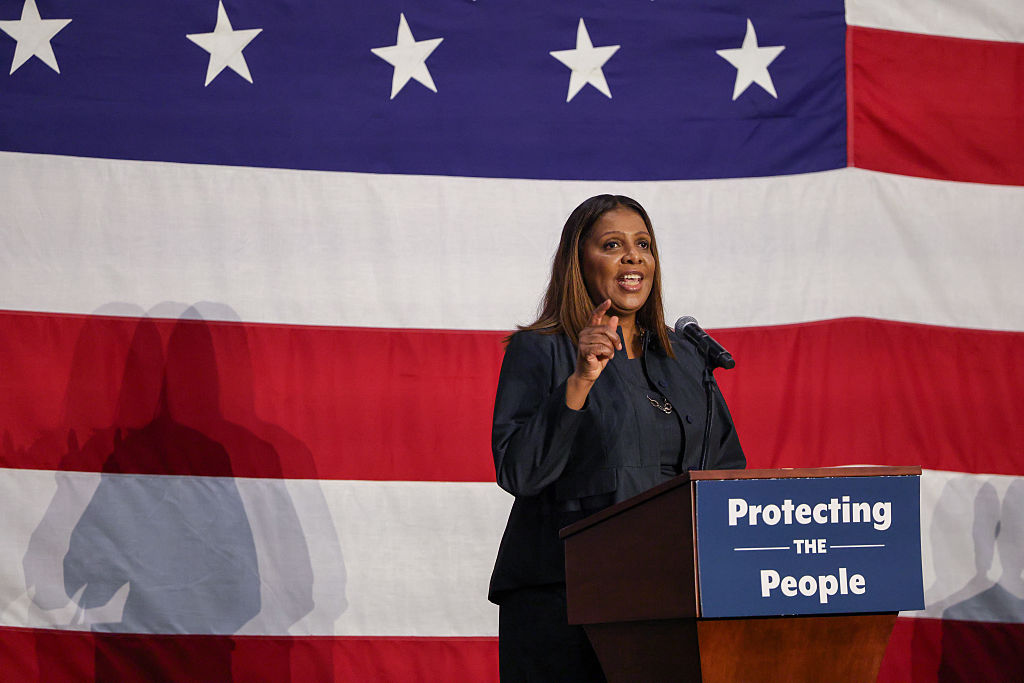Immigration 2020: Public Charge Welfare Rule Affects Black Immigrants, Too
‘Public Charge’: Effect On Black People Is Overlooked In Trump’s Latest Effort To Punish Immigrants
UPDATED: 5:32 p.m. ET, Jan. 27, 2020 —
The U.S. Supreme Court’s decision on Monday to allow several of President Donald Trump‘s controversial “public charge” rules challenges the popular narrative surrounding immigration in the U.S. that has long centered on Latinos, Hispanics and Central Americans. In addition to those groups, immigrants from majority Black countries will also be left vulnerable to tougher immigration regulations that were also expected to increase poverty.
MORE: The One Story Video: The Plight Of Black Immigrants In America
“The rules establish new criteria for who can be considered to be dependent on the U.S. government for benefits — “public charges,” in the words of the law — and thus ineligible for green cards and a path to U.S. citizenship,” the Washington Post reported after the ruling was announced Monday afternoon.
https://twitter.com/Azza_Alt/status/1221885151078178818?s=20
The decision, which came on the third anniversary of the so-called Muslim ban on travel to and from certain countries, provoked swift condemnation from advocacy groups who asked the Trump administration to reconsider implementing the rules.
“The Trump Administration’s changes to public charge are a backdoor effort to cut legal immigration, essentially creating a wealth test for individuals looking to come to the U.S. to contribute to our country and build a better life for themselves,” FWD.us President Todd Schulte said in a brief statement emailed to the media. “Today’s decision by the Supreme Court to uphold this policy will make life exponentially more difficult for many aspiring Americans who are working to become citizens, and will make it substantially harder for future immigrants to come here through existing legal channels. This policy is a backdoor effort to cut legal immigration and will hurt millions of families (including native-born Americans), our communities, and our economy.”
Joel Berg, CEO of Hunger Free America, remarked how the decision was “cruel” and counterproductive.
“It is simply cruel to deny food and other life-saving aid to immigrant children and their parents who are in the country legally,” Berg said in part.
The “Inadmissibility on Public Charge Grounds” rule, first proposed by the Department of Homeland Security (DHS) in 2018, is the Trump administration’s latest attempt to rig immigration policy in favor of English speakers whose earning power was near or on a par with that of American citizens.
According to the UndocuBlack Network, a nonprofit organization advocating for Black immigrants, the new rule will fall “in line with America’s racist history of preventing Black, Brown and Indigenous people from accessing resources and basic needs.”
Translated from legalese jargon, “public charge” is a “term used by U.S. immigration officials to refer to a person who is considered primarily dependent on the government for subsistence, as demonstrated by either receipt of public cash assistance for income maintenance or institutionalization for long-term care at government expense,” according to the National Immigration Law Center. “Where this consideration applies, an immigrant who is found to be ‘likely . . . to become a public charge’ may be denied admission to the U.S. or lawful permanent resident status.”)
That means that Trump and his administration think immigrants entering the U.S. are intentionally looking to live off government benefits, such as “the receipt of public cash assistance for income maintenance or institutionalization for long-term care at government expense,” according to the U.S. Citizenship and Immigration Services agency.
The problem with that logic was that “[u]ndocumented immigrants, including DACA holders, are ineligible to receive most federal public benefits, including means-tested benefits such as Supplemental Nutrition Assistance Program (SNAP, sometimes referred to as food stamps), regular Medicaid, Supplemental Security Income (SSI), and Temporary Assistance for Needy Families,” according to the National Immigration Forum.
Back when the rule was first proposed, “refugees, asylees, and amnestied illegal aliens [were] exempt from the public charge requirement,” according to the Federation for American Immigration Reform.
However, “[u]ndocumented immigrants may be eligible for a handful of benefits that are deemed necessary to protect life or guarantee safety in dire situations, such as emergency Medicaid, access to treatment in hospital emergency rooms, or access to healthcare and nutrition programs under the Special Supplemental Nutrition Program for Women, Infants, and Children (WIC).” And that’s what had Trump’s white nationalist administration so worried.
“The regulation also favors immigrants who speak the English language and who have earnings at or above 250 percent of the federal poverty level, which is a whopping $63,000 for a family of four,” UndocuBlack Network wrote on its website. That was a near impossible standard to meet for immigrants, let alone many American citizens, according to a list of states’ median income for four-person families that was compiled by the U.S. Census Bureau.
One positive sign for Black immigrants as the new rule goes into effect was that “compared with other immigrant groups, blacks are more likely to be U.S. citizens or to be proficient English speakers,” Pew Research Center found earlier this year. “Much of the recent growth in the foreign-born black population has been fueled by African migration,” Pew wrote, and “black immigrants from Africa are more likely than Americans overall to have a college degree or higher.”
But the Caribbean remained the most likely point of origin for Black immigrants in the U.S., including Haiti, where more than 650,000 people living in the U.S. were from.
Even though “[w]elfare use is high for both new arrivals and well-established immigrants,” according to a 2015 report from the Center for Immigration Studies,” undocumented immigrants have not been stealing benefits. They do, however, help pay for the public benefits American citizens receive, though, the Huffington Post reported in 2017.
“In reality, immigrants typically pay far more in taxes than they receive in benefits. And that includes undocumented immigrants,” HuffPost wrote. “Not only do they simply not qualify for many benefits, but undocumented immigrants also tend to keep a low profile and may not seek benefits they possibly could legitimately receive as a result. However, every year millions of undocumented immigrants not only do pay taxes, they even file their tax returns.”
All of which makes it look like the Trump administration is trying to cut off its own nose just to spite its face and prove some null talking point to bolster the president’s white nationalist rhetoric while burying the actual truth.
Or, as the UndocuBlack Network put it, “[a]nyone interested in challenging the war on poor people must fight for programs that support Black immigrants’ ability to access a better standard of living.”
SEE ALSO:
Gianna Bryant In Memoriam: Everything To Know About Her Burgeoning Basketball Career
Mainstream Media Fails At Covering Kobe Bryant’s Death With Racist, Insensitive Slip-Ups
















